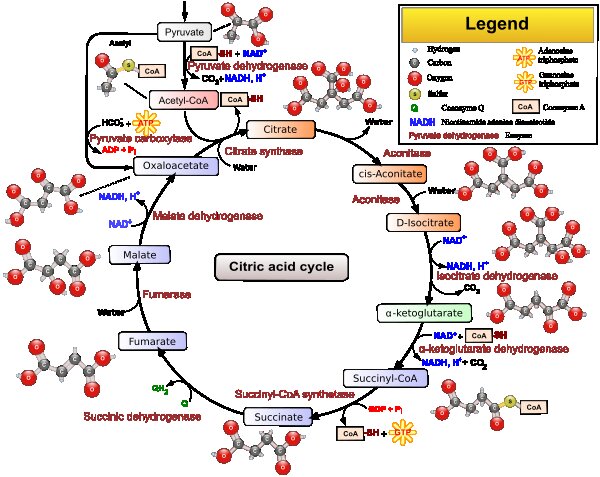
8 Strategies for Remembering
1. Become interested in what you're learning. We're all better remembering what interests us. Few people, for example, have a difficult time remembering the names of people they find attractive. If you're not intrinsically interested in what you're learning or trying to remember, you must find a way to become so. I have to admit I wasn't so good at this in medical school—the Krebs cycle (I provide the link only to prove how immensely boring it is) just didn't excite me or relate to anything I found even remotely exciting.
2. Find a way to leverage your visual memory. You'll be astounded by how much more this will enable you to remember. For example, imagine you're at a party and are introduced to five people in quick succession. How can you quickly memorize their names? Pick out a single defining visual characteristic of each person and connect it to a visual representation of their name, preferably through an action of some kind. For example, you can remember Mike who has large ears by creating a mental picture of a microphone (a "mike") clearing those big ears of wax (gross, I know—but all the more effective because of it). It requires mental effort to do this, but if you practice you'll be surprised how quickly you can come up with creative ways to generate these images. Here's another example: How often do you forget where you left your keys, your sunglasses, or your wallet? The next time you put something down somewhere, pause a moment to notice where you've placed it, and then in your mind blow it up. If you visualize the explosion in enough detail, you won't forget where you put it. Remember: Memory is predominantly visual.
3. Create a mental memory tree. If you're trying to memorize a large number of facts, find a way to relate them in your mind visually with a memory tree. Construct big branches first, then leaves. Branches and leaves should carry labels that are personally meaningful to you in some way, and the organization of the facts ("leaves") should be logical. It's been well recognized since the 1950's we remember "bits" of information better if we chunk them. For example, it's easier to remember 467890 as "467" and "890" than as six individual digits.
4. Associate what you're trying to learn with what you already know. It seems the more mental connections we have to a piece of information, the more successful we'll be in remembering it. This is why using mnemonics actually improves recall.
5. Write out the items to be memorized over and over and over. Among other things, this is how I learned the names of bacteria, what infections they cause, and what antibiotics treat them. Writing out facts in lists improves recall if you make yourself learn the lists actively instead of passively. In other words, don't just copy the list of facts you're trying to learn but actively recall each item you wish to learn and then write it down again and again and again. In doing this, you are, in effect, teaching yourself what you're trying to learn—and as all teachers know, the best way to ensure you know something is to have to teach it. This method has the added benefit of immediately showing you exactly which facts haven't made it into your long-term memory so you can focus more attention on learning them rather than wasting time reinforcing facts you already know.
6. When reading for retention, summarize each paragraph in the margin. This requires you to think about what you're reading, recycle it, and teach it to yourself again. Even take the concepts you're learning and reason forward with them; apply them to imagined novel situations, which creates more neural connections to reinforce the memory.
7. Do most of your studying in the afternoon. Though you may identify yourself as a "morning person" or "evening person" at least one study suggests your ability to memorize isn't influenced as much by what time of day you perceive yourself to be most alert but by the time of day you actually study—afternoon appearing to be the best.
8. Get adequate sleep to consolidate and retain memories. Not just at night after you've studied but the day before you study as well. Far better to do this than to stay up cramming all night for an exam.
To memorize an idea, a fact, a date, or a name, you need to repeat the information to yourself until it sticks in your head. Repeat. Repeat. Repeat. Here are several ways to do this: Read the information. Then look away and try to repeat it. Read the information again. Then look away and try to write it. Practice repeating. Go over the information more than once. Practice at the breakfast table. Practice on the way to work. Check yourself. Ask a friend or relative to test you. You need to be sure you truly remember what you've been working on! Overlearn. To remember information for a long time, review many times. Review on different days. Practice until it's easy to recall.
More Things You Can Do… Here are some tricks to try if you need to memorize a series of things or some complex ideas or dates:
Rhymes Try creating a rhyme to help you remember very specific information. For example, students over the years have learned the dates that Columbus sailed to the Americas by remembering this rhyme: Fourteen hundred and ninety-two, Columbus sailed the ocean blue. Fourteen hundred and ninety-three, Columbus sailed the bright blue sea!
Memory Devices You can also make up special memory devices to help you remember. For example, to remember the order of the planets, students sometimes create a silly sentence to help them. Each word in the sentence starts with the letter of the name of the planet. Like this: My Very Early Mother Just Saw Us Near Paris. This stands for Mercury, Venus, Earth, Mars, Jupiter, Saturn, Uranus, Neptune, Pluto. Try this for information that you need to remember in sequence.
I hope that one or two of these ideas will help you personally and professionally in the coming months.
Strength and courage,
Wade



